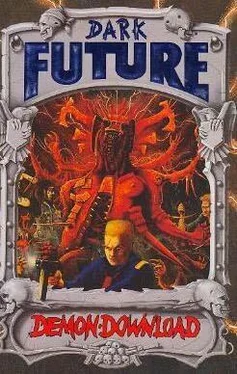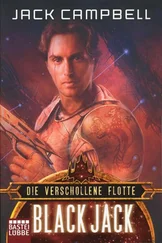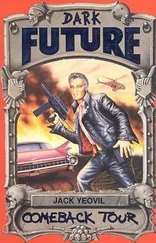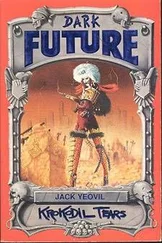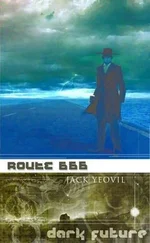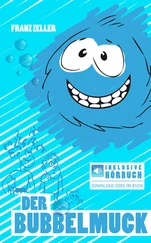The Path of Joseph was thorny, Duroc knew. He was the only gentile for miles. He was not a Josephite himself, could never adjust to the discipline, but he must follow the path. There were many parallels along it. The Josephite Church was merely one of the routes, his own family was another. Since childhood, it was all he had been trained for. Like his uncle before him, he was bred to do the bidding of Nguyen Seth.
The Elder came upon the stage. Duroc expected cheering, but there was none, just a giant gasp, a massed intake of breath, enough to suck all the oxygen out of all the air in Deseret. Seth extended his arms, and the Josephite Tabernacle Choir began to sing.
"Tis the gift to be simple…"
According to Duroc's uncle, Seth never changed. The contract had been made between Seth and the family during the 16th Century—this wasn't possible, but Duroc believed it now— and Marc-Ange Duroc, an ordinary footsoldier, was elevated to a position of power in the Inquisition during the suppression of the Knights Templar and the Albigensian Crusade. Later, in the aftermath of the French Revolution another Duroc served on Robespierre's Committee of Public Safety. Jean-Louis Duroc had lived through the Terror, would live through Napoleon, and his grandson would survive the Paris Commune and the Great War. Duroc's uncle's father was a high-ranking Gestapo officer during the occupation, and a similarly well-placed civil servant after the Second War. Wars, revolutions, bloodbaths and atrocities would come and go. There would always be a Duroc among the victors, among the spillers of blood, and there would rarely be a Duroc among the fallen. Duroc's uncle liaised with Seth in Indochina in the '50s, walking away from Dien Bien Phu in 1954 to join the Viet Minh, and Duroc himself had been with the Elder when he chose to play Warlord of the Khmer Rouge in the '70s. Duroc's uncle was dead now—Duroc had seen to that himself—and he was the sole disciple of the creature who wore the face of a man but had lived down the centuries unchanged, working towards his peculiar ends.
Sometimes, blasphemously, Duroc wondered what it would be like to be Nguyen Seth. Seth the Eternal, Seth the Unchanged, Seth the Summoner.
The song ended, and Nguyen Seth spoke to his followers. His words didn't matter. Few could ever remember anything specific he might say in his sermons, but the tone of voice, the gestures, the expressions—congregationists standing up to three miles away swore they could make out precise expressions in his eyes—were spellbinding.
Duroc was luckier than his forebears. He knew he was destined to be in at the end of it.
The Josephite Church was founded in 1843 by Joseph Shatner, a drink-sotted pimp and occasional beer buddy of Edgar Allan Poe's. An angel made itself manifest in the backroom of a Boston bar and handed Joseph a testament written in letters of fire, along with a pair of mirror-faced glasses that enabled him to interpret the otherwise impenetrable writings. The testament and the shades remained to this day prize possessions of the church, locked up in a safe in Seth's stronghold. The 1840s were great days for protestant sects in the United States. The Mormons—who had their own angel and their own glasses—the Mennonites, the Shakers, the Quakers, the Danites, the Agapemonists, the Adventists, the Dancing Fools, the Sons of Baphomet, thirty-five breeds of Baptist and numberless Hellfire and Damnation merchants were thriving. The Mormons got to Salt Lake City first, while Joseph Shatner was dodging fraud charges in Massachusetts and building up his first following.
Duroc knew that the shadowy figure referred to in Joseph's memoirs, whom he names "The Ute" (never having been West of New England, he had no idea what a Plains Indian looked like) and who had bankrolled the early days of his sect was none other man Nguyen Seth, who was today taken by most people for either an Egyptian or a Vietnamese. Joseph had attracted followers by allowing all manner of liberties and excesses barred by other denominations, and then withdrew all allowances for everybody except himself. He died a martyr, hanged by the Massachusetts authorities under anti-sorcery laws that had lain unused on the statutes since the Salem witch trials. Led by "The Ute," his followers had made their way West to settle the wilderness. Joseph's brother Hendrik Shatner—rumoured to be the only man of the American garrison to step out of the line drawn by Davy Crockett at the Alamo in 1836 and decorated by General Antonio Lopez de Santa Anna for services to Mexico during the siege—took command, and his colourful career later included leading the Josephite forces during a brief war with federal troops in the 1850s.
Like the Mormons, the Josephites out West allied with the Indians when it came to resisting the encroachments of other settlers and Hendrik had personally led a joint Josephite-Chiricahua raid against a gentile community called New Canaan in Southern Utah. That had been one of the bloodiest days of the Old West, and Hendrik, war-painted and wearing the black hat that had him named Bonnet-of-Death by his allies, was supposed to have personally lifted thirty scalps. Now, Duroc could appreciate the history better. Now he knew of the need to spill blood constantly, in defiance of the Biblical word, and as a seal on the charms of Invocation. Hendrik Shatner had lived to be 97, and died amid great wealth attended by the several mistresses he maintained until the last. Duroc planned to do better for himself.
Seth finished his speech, and the choir began again. This time, they joined voices in the Josephite anthem, "The Path of Joseph." As a single throat, the multitude joined in.
It was quite possibly the. loudest human sound ever heard in history.
Roger Duroc clamped his hands over his ears, looked down at the salt, and relished the prospect of the End of the World.
When it was all over, there would be few winners and many losers. He would be in the former category. Indeed, after Nguyen Seth, he would be the big winner. All the suckers in the world, all the suckers in the crowd, were placing their bets on the wrong side, the losing side. To only a few had the correct result of the last battle been revealed.
He knew who would inherit the Earth, and it wasn't the meek.
He knew who would ascend to the throne of Heaven, and it wasn't the pure in heart. The seven-thousand-year snowjob was about to be blown out of the water.
The hymn rose up to the Heavens, but Duroc's thoughts stayed below. The news from Welcome was good. He felt an almost sexual excitement, the thrill of being part of somethng vast that would affect the entire human race and of being one of the few people—perhaps the only person—with the knowledge to appreciate just what was, in the vernacular of the Americas, going down.
Things were coming to a head.
"The Path of Joseph" was nearly over.
"In the Name of Joseph," the multitude sang,
"In the Name of the Lord," Duroc joined in…
"…HALLELUJAH!"
Federico the Ferrari took care of most of the driving, but Chantal liked to keep the manual override. She had no ambition to become a cyborg, but she loved the feeling of communion with the machine. She had no bio-implants, had always found the idea somewhat distasteful, but there was an undeniable attraction in this temporary fusion. With her helmet on, she was in harmony with the car's system. It was a cyberfeed, but the terminal rested against her shaven hackles rawer than jacking into a skull-socket. Sometimes, she could feel the road under the wheels. She and Federico took turns to select musics from the Ferrari library of non-Russian pop. It answered her choice of Jim Morrison's "I'm a Believer" with Don Gibson's "Sea of Heartbreak."
Читать дальше
